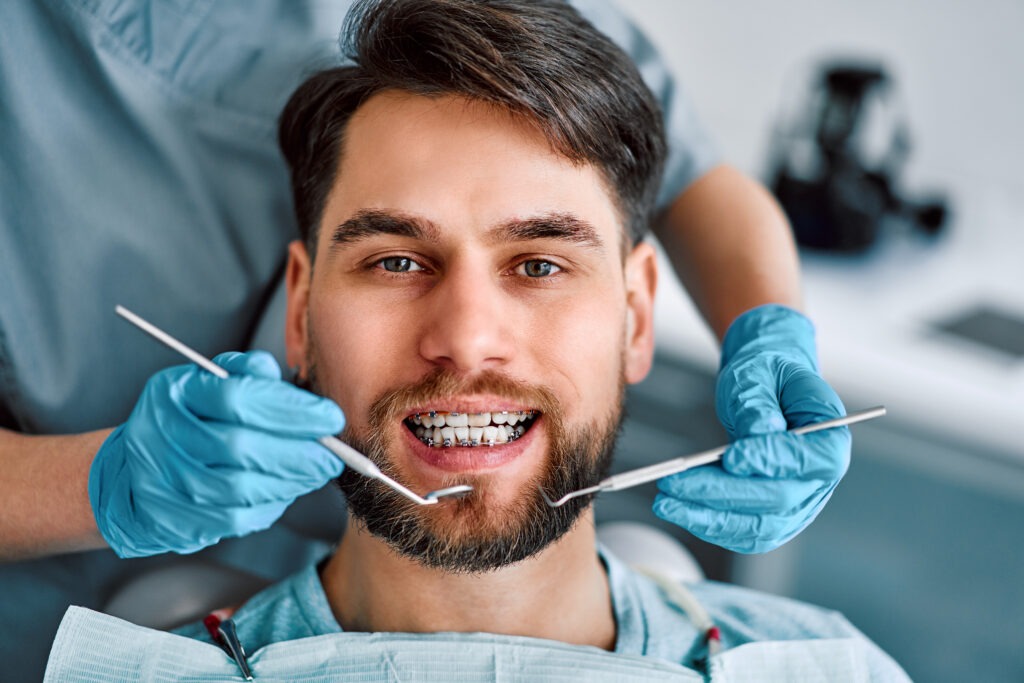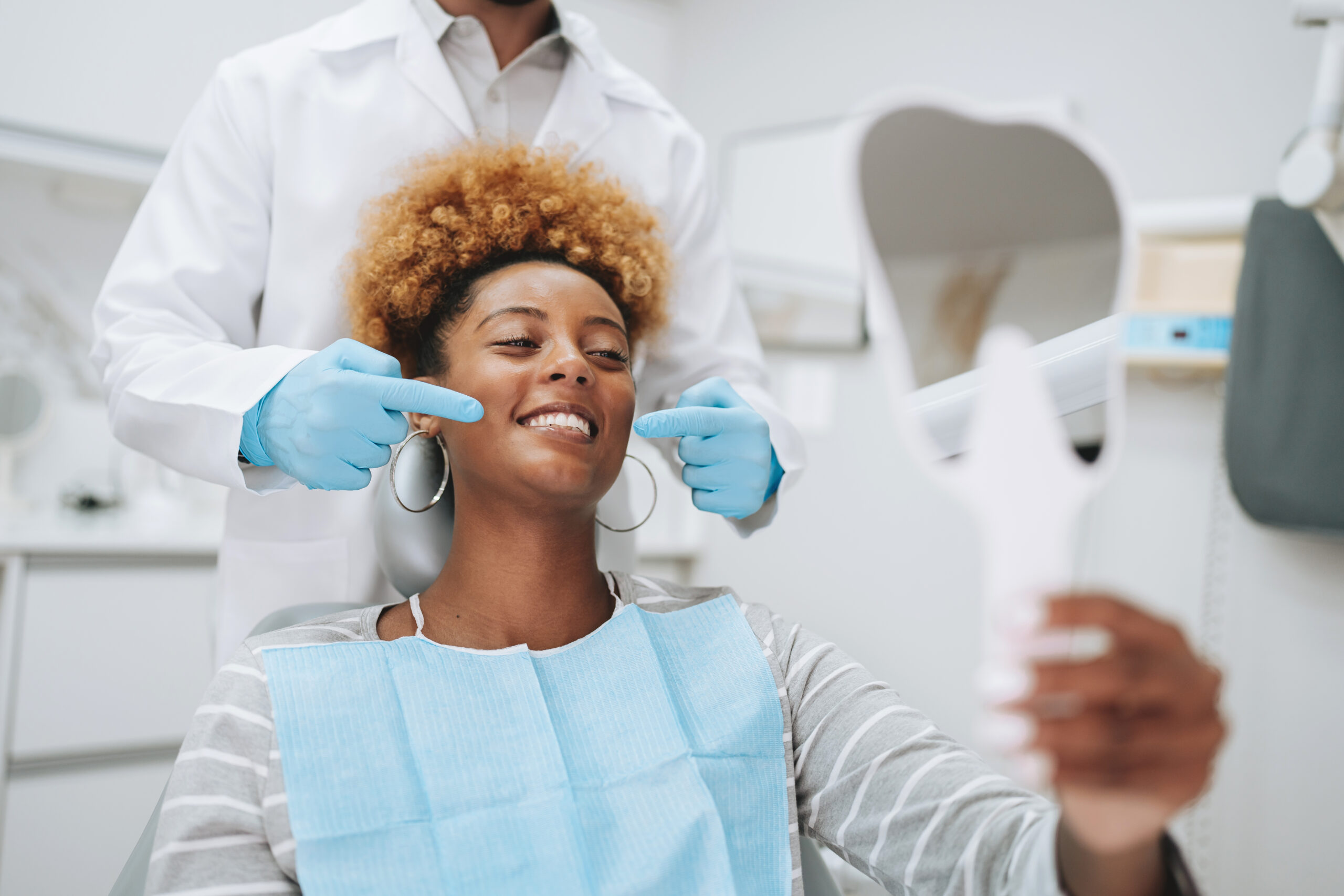Do you experience jaw pain, clicking sounds when you chew, or frequent headaches? If so, you might be dealing with temporomandibular joint disorder (TMD), a condition that affects the joints connecting your jaw to your skull. TMD can cause chronic discomfort, difficulty chewing, and even migraines, but the good news is that an orthodontist can help alleviate these symptoms.
Orthodontic treatment can correct bite misalignment, reduce muscle tension, and provide customized solutions like nightguards or botulinum toxin (Botox) therapy to relax overactive facial muscles. Let’s explore how orthodontic care can play a crucial role in relieving TMJ pain.
What Causes TMJ Disorders (TMD)?
TMD is a complex condition that can arise from multiple factors, including:
- Bite Misalignment (Malocclusion): If your teeth don’t come together properly, it can put excessive strain on your jaw joint, leading to pain and dysfunction.
- Teeth Grinding (Bruxism): Clenching or grinding your teeth, especially at night, can overwork the jaw muscles, contributing to TMJ pain.
- Jaw Muscle Overuse: Excessive chewing, stress-induced jaw tension, or overactive facial muscles can lead to jaw discomfort.
- Joint Problems: Arthritis, injury, or disc displacement within the jaw joint can cause TMD symptoms.
Since TMD can have multiple causes, treatment often requires a multi-faceted approach tailored to the patient’s specific needs.

How an Orthodontist Can Help with TMJ Pain
1. Correcting Your Bite with Orthodontic Treatment
One of the most common causes of TMD is a misaligned bite (malocclusion). If your upper and lower teeth do not fit together properly, it can put extra stress on your jaw joint and surrounding muscles.
An orthodontist can correct bite issues with:
- Braces: Gradually shifts teeth into proper alignment, reducing strain on the jaw.
- Clear Aligners (Invisalign): A more discreet way to correct mild to moderate bite problems that may contribute to TMD.
- Expanders or Other Appliances: In some cases, specialized orthodontic devices may be needed to reposition the jaw for better function.
By improving your bite alignment, the jaw joint can function more smoothly, leading to a reduction in TMJ pain over time.
2. Custom Nightguards to Reduce Clenching & Grinding
For patients who grind or clench their teeth (especially at night), a custom-made nightguard (occlusal splint) can be a simple and effective solution.
- A nightguard prevents direct contact between the upper and lower teeth, reducing stress on the jaw joint.
- It helps protect the enamel from wear and tear due to grinding.
- The relaxed jaw position encouraged by the nightguard can alleviate muscle tension and reduce morning jaw pain.
Unlike over-the-counter mouthguards, a custom nightguard is designed specifically for your teeth, providing a more comfortable and effective fit.
3. Botox Treatment for TMJ Pain Relief
For patients with severe muscle tension contributing to their TMD symptoms, botulinum toxin (Botox) injections can be an effective treatment option. Botox works by relaxing overactive jaw muscles, reducing excessive clenching and relieving pain.
How does Botox help with TMJ pain?
- Reduces muscle tightness that contributes to jaw pain.
- Prevents involuntary clenching and grinding, which can worsen TMJ symptoms.
- Provides relief from headaches and facial pain associated with TMD.
Botox treatment is minimally invasive and can provide months of relief from TMJ discomfort. Many patients find that combining Botox therapy with orthodontic treatment or a nightguard leads to long-term symptom improvement.
Which Treatment Is Right for You?
Because TMD varies from person to person, an individualized approach is necessary to find the best treatment. During your orthodontic consultation, we will:
- Conduct a thorough examination of your jaw, teeth, and bite.
- Take X-rays or digital scans to assess jaw alignment.
- Discuss your symptoms and habits (such as grinding or clenching).
- Recommend a customized treatment plan that may include braces, aligners, a nightguard, or Botox therapy.

Find Relief from TMJ Pain with Orthodontic Care
Living with TMJ pain can affect your daily life, from eating to speaking and even sleeping. Fortunately, orthodontic treatment can help address the root cause of your discomfort, whether it’s an improper bite, excessive muscle tension, or nighttime grinding.
If you’re struggling with jaw pain, clicking, or chronic headaches, schedule a consultation with our office today. The Emuli Funk Orthodontic team is here to help you achieve a healthy, pain-free smile!
 Free Consult
Free Consult